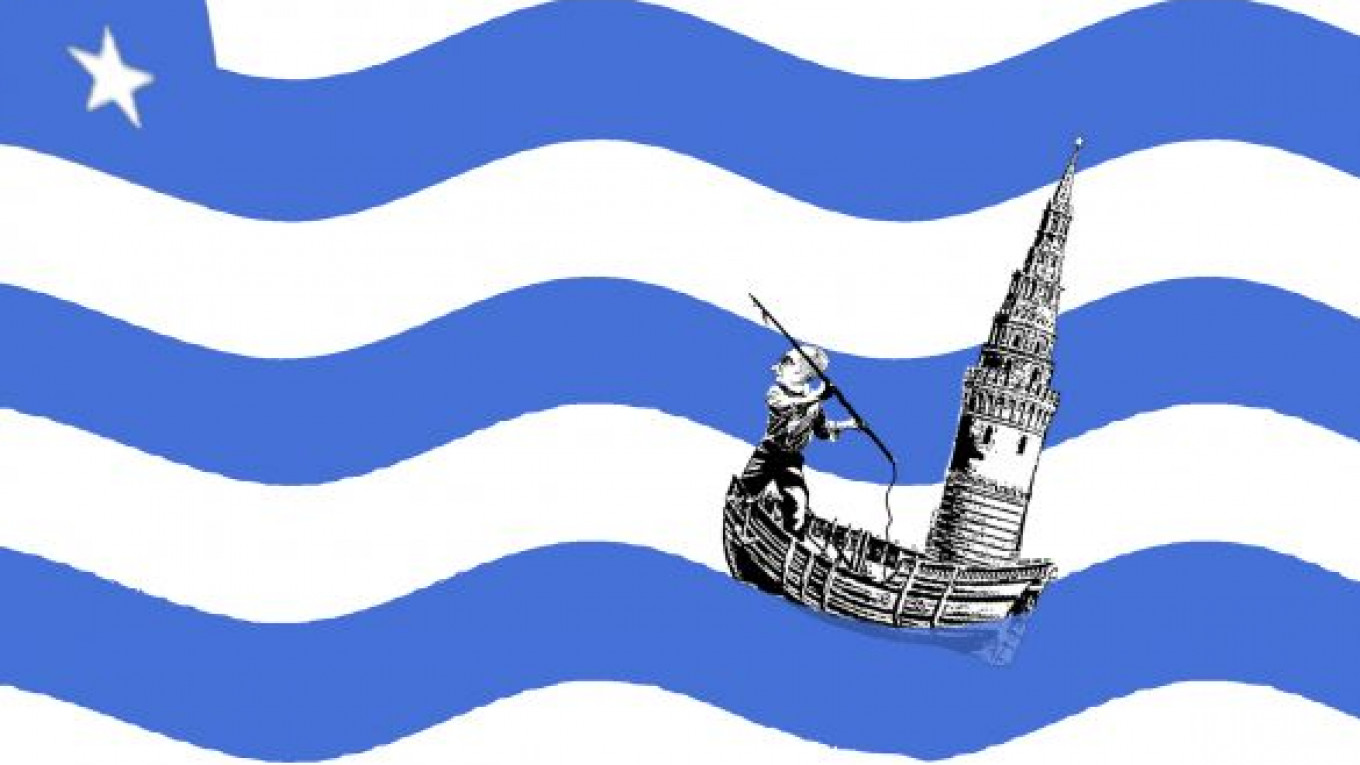The Kremlin is conducting its current anti-U.S. campaign according to the same scenario it used in all previous campaigns against countries that irritated President Vladimir Putin and were labeled as "enemies." Similar campaigns were waged against Latvia, Estonia, Lithuania and Poland.
The Kremlin's approach to these propaganda campaigns follows the same basic standard. First, every campaign is reactive in nature and never the result of a deliberate strategy. Instead, the campaigns are spontaneous and often reckless, knee-jerk reactions to specific events the Kremlin finds annoying. For example, the large-scale campaign against Georgia in the fall of 2006 was launched after Tbilisi detained five officers of Russia's Main Intelligence Directorate on charges of espionage. Similarly, a campaign was unleashed against Estonia in 2007 after that country moved a monument to fallen Soviet soldiers out of the Tallinn city center. The Kremlin initiated the current anti-U.S. campaign as a spontaneous retaliation for passage of the Magnitsky Act.
Second, the decision to initiate a defamation campaign against a designated country is almost always made by Putin and usually confirmed in a special meeting with members of the Security Council. As a rule, the campaigns are emotional reactions without any somber or thorough analysis of its predictable consequences. For example, a special session of the Security Council was called immediately after the Russian intelligence officers were detained in Georgia, and the series of measures to take in response was hurriedly worked out during that meeting.
Third, the measures used are always selected so as to cause maximum damage or discomfort for the "enemy" and without any regard for moral or legal considerations. For example, the anti-Georgia campaign in 2006 incorporated a no-holds-barred strategy. Air and automobile traffic between the countries was halted, as were mail and money transfers. House-to-house searches were conducted for people with Georgian surnames under the pretext of "the struggle against illegal immigration." Detainees were subjected to abuse, and more than 800 people were quickly deported, two of whom died. A number of Georgian children — even those with Russian citizenship — were evicted from schools. Georgian restaurants and cafes were subjected to punitive inspections, some of which were forced to shut down.
The same fate befell major Georgian-owned casinos and entertainment complexes such as Kristall, Golden Palace and Bakkara, while casinos owned by other nationalities were left untouched. Publishers putting out books by renowned Georgian author Grigory Chkhartishvili, better known as Boris Akunin, were subjected to tax inspections. The Kremlin enlisted chief sanitary doctor Gennady Onishchenko, who has served the same function in similar campaigns, to ban Georgian food products and wine. Most of those sanctions against Georgia remain in force to this day, and even more were added following the Russia-Georgia war in 2008.
The same scenario is playing out in the current anti-U.S. campaign. The immediate pretext for was U.S. President Barack Obama's signing of the Magnitsky Act on Dec. 14. The immoral and inhumane ban on adoption of Russian orphans by U.S. citizens is just one more example of Putin's erratic and ill-conceived decisions. Putin wanted to deliver a blow to U.S. parents who were set on adopting children from Russia, knowing that Russia is the third-most-popular country for U.S. foreign adoptions, with more than 60,000 adoptions over the past 20 years.
Yet Putin ignored the fact that U.S. parents can easily look to similar neighboring countries, such as Ukraine, Moldova and other former Soviet republics, that also have a large number of orphans. Much worse, however, is that Putin's "Anti-Magnitsky Act" deals a crippling blow to thousands of Russia's own orphans, most of whom will now be deprived of their lawful right to be adopted by loving parents. What's more, the law contradicts a new bilateral agreement regulating the adoption process that went into effect in November, and there are serious legal questions about whether the law violates international conventions that Russia signed on children's rights.
For now, the Kremlin is afraid of imposing any economic measures against the United States other than the standard tit-for-tat ban on imports of U.S. pork. The Russian economy is already weak, and sanctions against U.S. firms could exacerbate the country's economic stagnation. In addition, the Kremlin fears retaliatory U.S. sanctions because much of Russian industry, including the defense sector, is critically dependent on modern U.S. components, such as computer chips, that simply do not exist in Russia.
Russian officials are considering additional measures as well, such as limits on the percentage of U.S. movies that Russian theaters can show. Additional restrictions, such as visa denials, might also be placed on U.S. journalists and other "suspicious Americans" working in Russia. In short, expect a new round of anti-Americanism in 2013.
Vladimir Ryzhkov, a State Duma deputy from 1993 to 2007, hosts a political talk show on Ekho Moskvy radio and is a co-founder of the opposition RP-Party of People's Freedom.
Related articles:
A Message from The Moscow Times:
Dear readers,
We are facing unprecedented challenges. Russia's Prosecutor General's Office has designated The Moscow Times as an "undesirable" organization, criminalizing our work and putting our staff at risk of prosecution. This follows our earlier unjust labeling as a "foreign agent."
These actions are direct attempts to silence independent journalism in Russia. The authorities claim our work "discredits the decisions of the Russian leadership." We see things differently: we strive to provide accurate, unbiased reporting on Russia.
We, the journalists of The Moscow Times, refuse to be silenced. But to continue our work, we need your help.
Your support, no matter how small, makes a world of difference. If you can, please support us monthly starting from just $2. It's quick to set up, and every contribution makes a significant impact.
By supporting The Moscow Times, you're defending open, independent journalism in the face of repression. Thank you for standing with us.
Remind me later.








